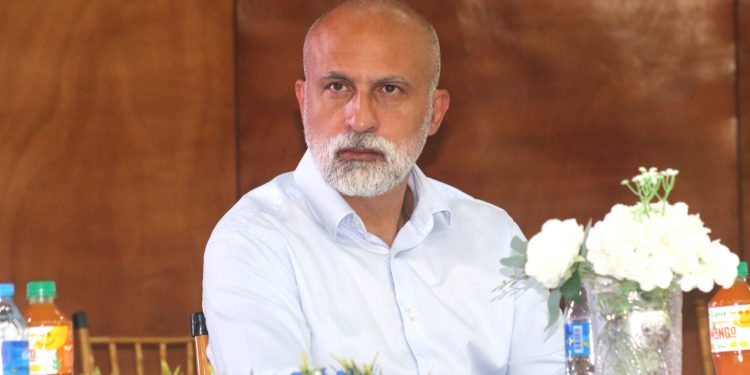Shadi Gerjawi, Chief Executive Officer (CEO) of Africell Sierra Leone, took center stage at the Salone Civic Festival 2024, held at the Youyi Building on December 12, 2024. Participating in a high-level panel discussion moderated by Mohamed Jaward Nyallay of the Ministry of Information and Civic Education, Gerjawi shared valuable insights on the transformative role of technology, innovation, and infrastructure in Sierra Leone’s development.
During his address, Shadi Gerjawi spotlighted the revolutionary impact of Africell’s flagship financial platform, Afrimoney, on promoting financial inclusion in the country. He explained that Afrimoney has drastically cut down the time required to complete financial transactions. “When we talk about financial inclusion, we have reduced the process from three hours to just one minute,” he revealed. “In the past, making a payment or cashing a cheque required a trip to the bank, often resulting in long waits and high transportation costs. Now, with our initiatives, these transactions can be completed from the comfort of your homes.”
The Salone Civic Festival 2024 brought together a distinguished lineup of speakers and panelists, including Salima Monorna Bah, Hon. Dr. Kandeh Yumkella, Hawa Kone, and Dennis Sandy. The forum facilitated rich dialogue on key issues impacting the nation, with a special focus on technology, education, and gender inclusion.
Expanding on Africell’s commitment to technological advancement, Gerjawi highlighted the unseen efforts that fuel the company’s innovative products and services. While the public sees the “bright lights and bright colors” of Africell’s services, Gerjawi emphasized the extensive investment, design work, and problem-solving that take place behind the scenes. “Just like a tree where the roots go deep underground, much of our work is hidden from public view,” he explained, using the analogy to illustrate the hidden complexities that support visible successes.
The CEO also underscored Africell’s commitment to education, particularly in providing support to schools. He pointed out the existing digital divide among schools in Freetown and parts of the provinces, with some having access to computing resources while others still lack such facilities. According to him, this disparity underscores Africell’s resolve to bridge the technological gap for all learners.
In a nod to gender equity, Gerjawi addressed the underrepresentation of women in STEM (Science, Technology, Engineering, and Mathematics) careers. He revealed that despite the growing number of female graduates in engineering, it remains a challenge to recruit female engineers for Africell’s technical department. “We’ve been actively trying to get more female engineers into our technical department, but it has been one of the most difficult tasks,” he admitted. He encouraged women to pursue careers in technical fields, highlighting the immense potential for growth and impact.
When asked to offer advice to young people interested in the tech sector, Shadi Gerjawi took the opportunity to stress the importance of supporting local technological solutions. He emphasized the need to embrace systems developed locally instead of relying solely on imported solutions. “At Africell, ten years ago, we made the decision to venture with local entrepreneurs who were developing systems here in Sierra Leone rather than relying on off-the-shelf solutions from abroad,” he said. While importing systems would have been cheaper, Africell’s decision to invest locally has proven to be a sustainable and impactful strategy.
As Africell continues to lead in the telecommunications sector, its initiatives like Afrimoney and its support for local innovation demonstrate the company’s people-centered approach. By fostering financial inclusion, promoting educational support, and championing gender equity in STEM, Africell is helping to shape a more connected, inclusive, and technologically advanced Sierra Leone.










